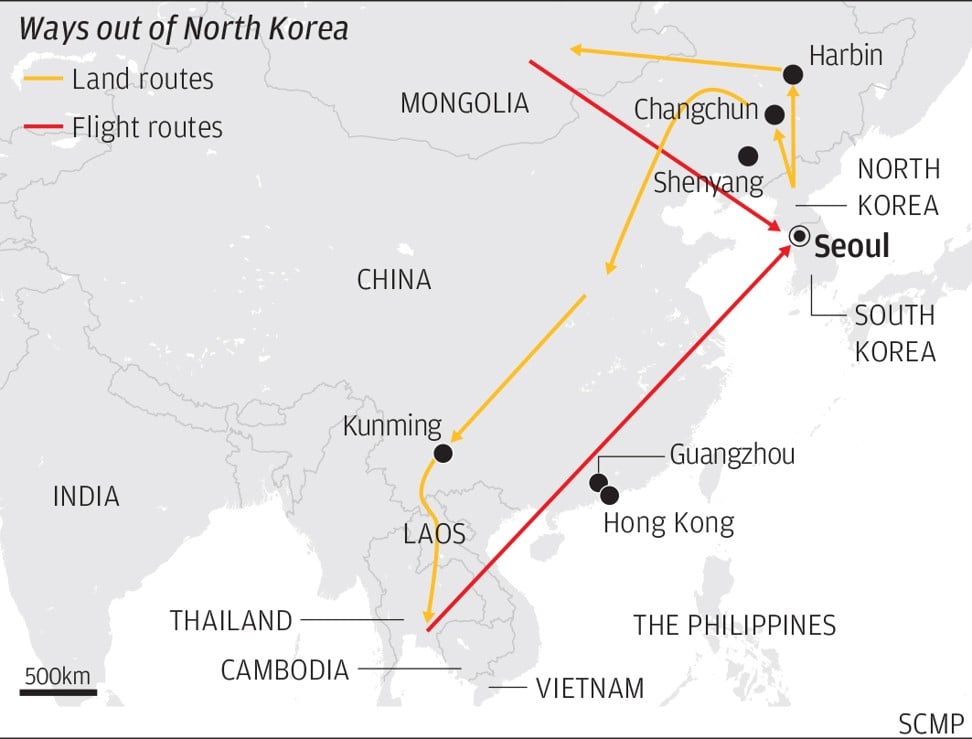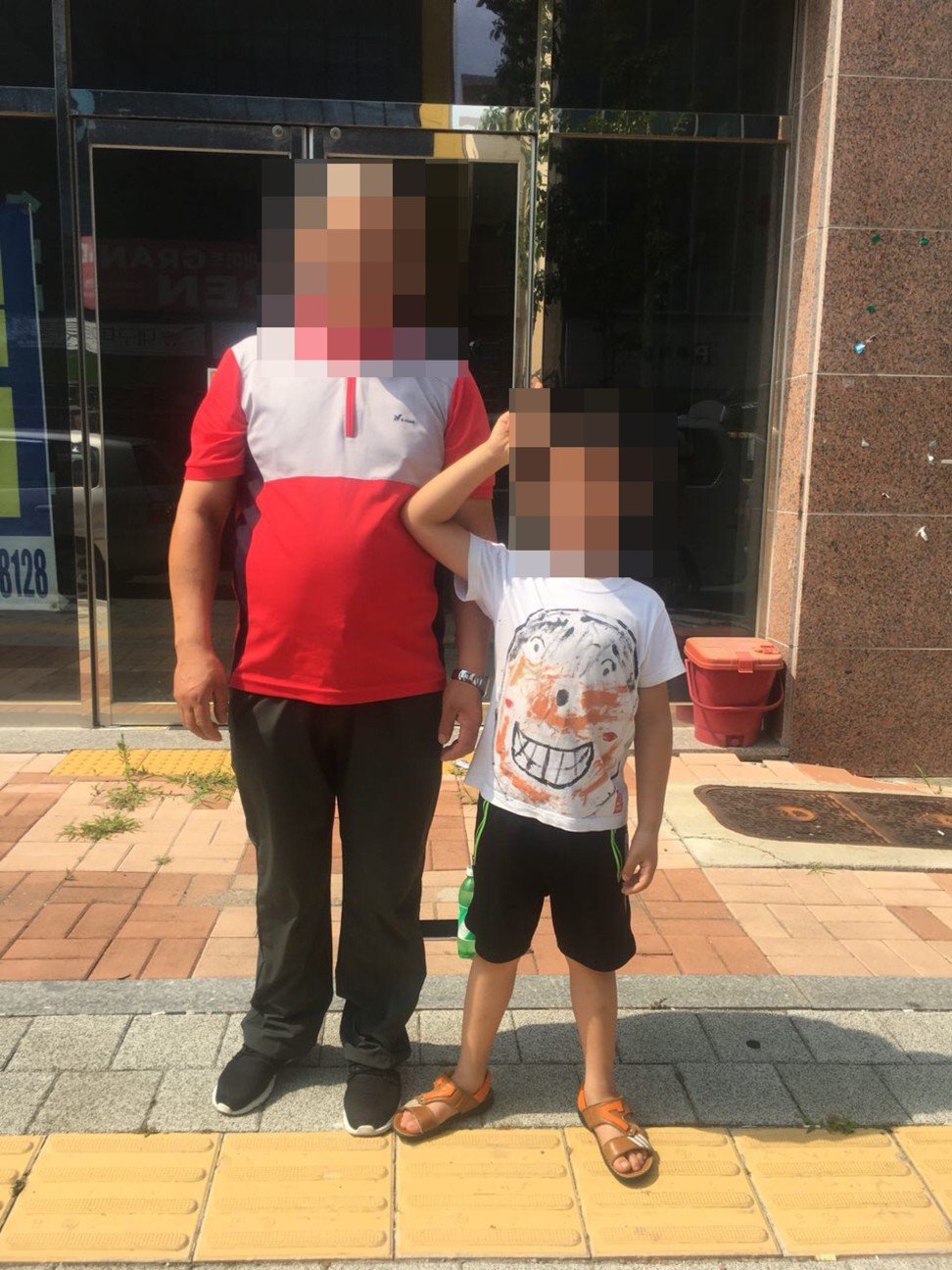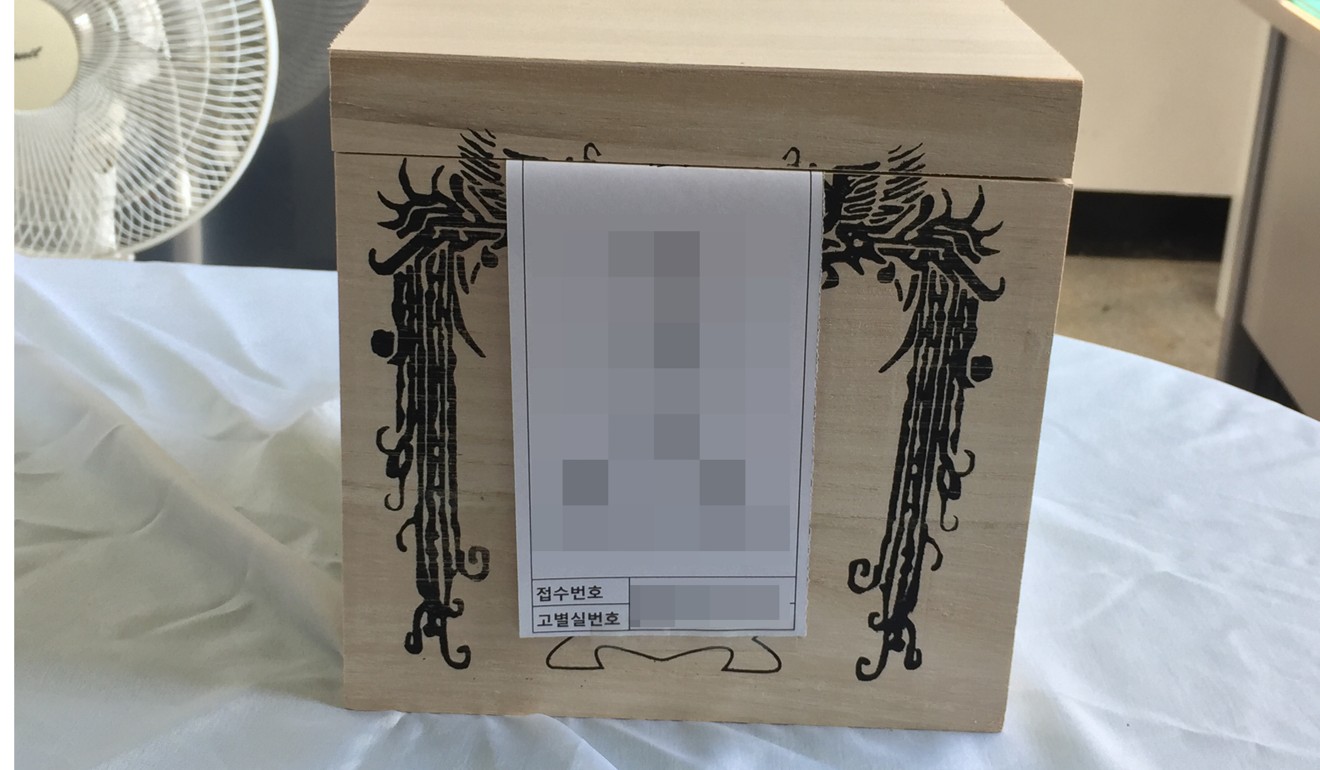
Sold and separated: the trafficked North Korean women trying to bring their Chinese children ‘home’ to the South
China is the main way out of North Korea for people fleeing the country but for many of the women who make it across the border, human traffickers are waiting to kidnap and sell them to Chinese men. Those who later make it to the South must endure the torment of leaving the Chinese children they have with these men behind. In this instalment of a four-part series, Josephine Ma looks at how a lasting reunion proved elusive for one woman who had already suffered a lifetime of struggle
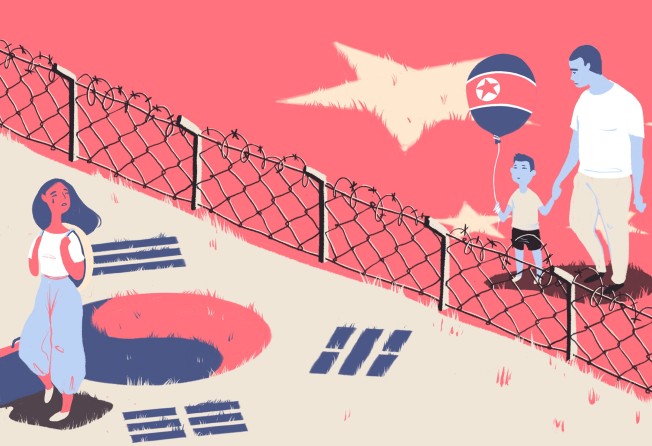
For North Korean defector Choi Ran*, Daegu was to be the start of her last new beginning.
The South Korean city was meant to be the final stop in a decade-long ordeal from starvation in the North and at least one forced marriage in China to cultural isolation in the South.
It was meant to be the first step in a fresh start with her “husband”, the 49-year-old Chinese cab driver she was sold to in her mid-thirties, and their young son, born in the rural backwaters of China’s Heilongjiang province.
But Daegu proved to be the end of the end for the 45-year-old. In March, just weeks after the three were reunited, Choi was murdered by her lover, a businessman who had funded the expensive reunion and killed Choi when she said she wanted to break up.
Her ashes now rest in a box at the Yongin Crematorium, in a special section for homeless people.

Choi’s life was testament to the complex web of ties that bind the thousands of North Korean women fleeing the hermit kingdom via China and the lengths to which they must go to keep their families together.
Whether they stay weeks or years, China is an integral familial link between those fleeing and the life they leave behind in North Korea. No matter which border they cross, they never stop being mothers or sisters or daughters, doing all they can to reforge family bonds – including those with their children in China, volunteers and defectors say.
FORCED UNION
Choi’s husband, who did not want to be identified, said he bought Choi from a human trafficker nine years ago for 26,000 yuan. He was too old and too poor to find a Chinese wife and she was vulnerable, having crossed the border for a second time from North Korea.
Choi learned Chinese when lived in China in her twenties before she was found by Chinese police and sent back to North Korea, as was the fate of her sister.
“She did not hear from her sister again,” Choi’s husband said.
Choi fled across the border again – and this time traffickers were waiting on the other side.
Rights groups estimate that there are anywhere from 100,000 to 300,000 North Koreans hiding in China, most of them in the country’s northeast.
The fortunate defectors may spend only weeks in China before they can take the usual route out to South Korea via Laos and Thailand through paid brokers, or with the help of Christian missionaries or other sympathisers. Once they reach Thailand, they are put in touch with the South Korean embassy for the final stage of the journey. Other North Koreans escape via Mongolia.
But many women end up spending years, or even a lifetime, in China after being sold to men in impoverished areas as wives or even sex slaves, according to rights groups. Language barriers and the threat of being sent back to North Korea prevent them from going on the run.
Choi and her husband had a son and spent nine years together before fears of a crackdown prompted her to resume her flight to South Korea – with her husband’s blessing.
“We got along all right. She told me that if I didn’t want her to leave for South Korea, she wouldn’t go,” the husband said.
“She had no legal status in China and she may be caught by the police. But she could have residency in South Korea.”
China treats North Koreans as illegal immigrants and repatriates them once they are found. Those who are sent back face interrogation, forced abortions, or “reeducation” camps that can come with their own death sentence, according to exiles and human rights groups.
Choi arrived in South Korea in April last year, part of a rising tide of women defectors. According to South Korea’s Ministry of Unification, about 32,000 North Koreans have made the trip south in the past two decades, and over 70 per cent of them were women.
The percentage of women has climbed in recent years, reaching about 80 per cent in 2015, 83 per cent in 2017 and 87 per cent in the first six months of this year. At the same time, the total number of people who have made it to the South has declined since North Korean leader Kim Jong-un came to power in 2012 and security tightened on the China-North Korea border.
Once in the South, Choi began the process of rebuilding her life – again.
As she struggled to adapt to another new environment and confronted various social and educational barriers to getting a job, she submitted the lengthy paperwork and DNA tests needed to prove her relationship with her son in China and applied for him to have residency.
She also contacted Voice of the Martyrs – Korea (VOM), a Christian organisation that helps North Korean defectors.
AT A LOSS
VOM founder Eric Foley said Choi first came in contact with organisation in China, and the group was surprised to hear from her after she arrived in South Korea because they never knew she planned to go to the South.
They remained in contact and VOM staff visited her two months before her death, witnessing a tearful phone call from Choi telling her husband and son how much she missed them.
Foley said that even though Choi had been sold to the Chinese cab driver, she wanted them to have a new home in South Korea together with her son.
“We know that with regularity there are women who want to bring their Chinese husbands. Would they be majority? No, but is it rare? No,” Foley said.
“Many of these women strive to bring their children over to South Korea. When they cannot, they will continue to send money back to China and North Korea.”
In February this year, Choi finally managed to move her husband and son to Daegu.
But the family reunion was brief. Only a month after their arrival, Choi was dead.
Choi was involved in a relationship with a businessman, who like her had defected from North Korea.
How they met is unclear – Choi’s husband said he did not know about his wife’s relationship with the man.
But one thing he is clear about is that he now regrets letting Choi to go to South Korea.
“My wife is dead, how would I not regret it?” he said from his home in a public housing estate in Daegu.
He wrestled with whether to return to China after the death of his wife, but he decided to stay because his son had South Korea residency and, with it, opportunity.
“In China, it is even worse – who would give you free housing and education?” he said.
“Of course I miss her, we spent nine years together and of course my son misses his mother.”
However, the small family is largely alone in its grief. Rumours spread in the defector community that Choi was a prostitute, and people who were once friends distanced themselves from the family, Foley said.
“None of them showed up in a memorial service we held for her,” he said.
Foley said defectors faced very difficult choices and some resorted to prostitution to earn a living, while others did so to support their families in North Korea.
“No North Korean women are in prostitution because they want to be in prostitution. [Prostitution] is neither common nor a rare case among defectors,” he said.
“Let’s be clear: human trafficking is a horrific evil. But Martin Luther King Jnr said that a person’s evil deed does not express all they are. That is certainly true of the Chinese men who buy North Korean women. Ms Choi’s husband is better than some of these men, worse than others,” Foley said.
“Ms Choi ... was trying to ... hold on to her family. People in South Korea may say she should not have a boyfriend here. That is easy for people to say. But those who do North Korean work know lives are always complex for them.”
Ji Hyeon-a, a high profile North Korean exile in the South who was twice sold to traffickers in China, said that although some North Korean women were treated well by their Chinese buyers, most suffered.
“Most of the women are sold to disabled, elderly or very poor people. Some treated us like a slave or something to breed children,” she said.
LEFT BEHIND
Bang Mi-soon*, 68, knows the complexities of separated families too well. She fled North Korea with her daughter in the 1990s as famine gripped the country, killing more than 10 per cent of its population, according to some estimates.
Bang’s two sons had already crossed safely over into China and had sent word back of where they were living in Changchun, the capital of the border province of Jilin. She knew that her 22-year-old daughter could fall prey to human traffickers on the other side but decided to take the risk, letting the daughter go first in 1998.
“It is better than dying here,” Bang said, recalling her feelings at the time.
The daughter made it across and knocked on the door of a house near the border. The family there took her in, only to sell her to a cousin of the owner of the house, Bang said.
“The owners of houses near the border will take in young female defectors and tell human traffickers. But they usually turn older women and men over to the police or simply turn them away,” a VOM worker said.
Three months later, Bang crossed the border and joined her sons in Changchun, remaining underground for seven years before taking a perilous journey to South Korea through Thailand.
All the while, Bang had no idea of her daughter’s fate.

More than a decade passed before Bang’s daughter finally won the trust of her neighbours and husband and found the place where her brothers had been hiding in Changchun. The siblings were long gone but contacts in the North Korean community eventually put her in touch with her mother in the South.
It was only after their reunion in South Korea in 2010 that Bang found out that her daughter had been sold to a man in an impoverished part of China and had a son with him.
Bang said her daughter was torn about leaving her Chinese son behind and was now trying to bring him to South Korea.
“My daughter also wanted to bring her Chinese husband and son to South Korea because of the son. But the husband’s family is so uneducated and he didn’t know how to process the paperwork. They are still in China,” she said.
Bang’s daughter has since married a South Korean man but continues to send money to China to support her son.
LOCKED IN LIMBO
Unlike Choi and Bang, 65-year-old Kim Gui-ja* was not planning to leave North Korea and her children for good when she crossed into China in 2010. Her plan was to work at a fish processing plant in Yanji, Jilin, for three months to earn enough money for her daughter’s wedding.
But Kim became enslaved by the plant’s owner who threatened to notify the Chinese authorities if she tried to leave or eased off on her gruelling work, she said.
“I worked hard to clean fish intestines and my workload was equal to three to four workers. The owner is Chinese and grew up in North Korea. He would not let me go,” she said.
After nearly three years, Kim fled the plant and, fearing she would be sent to a reeducation camp where torture and death could await, joined the exodus south.
The slavery in China and resulting escape to the South means she had to abandon her children in North Korea. Over the years, she has sent money back to her children, but worries about how much longer she can go on.
Like other middle-aged and older women, Kim struggles to get work and lives on the fringes of South Korean society.
Foley said these women were part of a “lost generation” overlooked by the South Korean government and charities, which concentrated their efforts on younger defectors who adapted more easily.
“We should redouble our efforts to make the generation actually have an option,” he said.
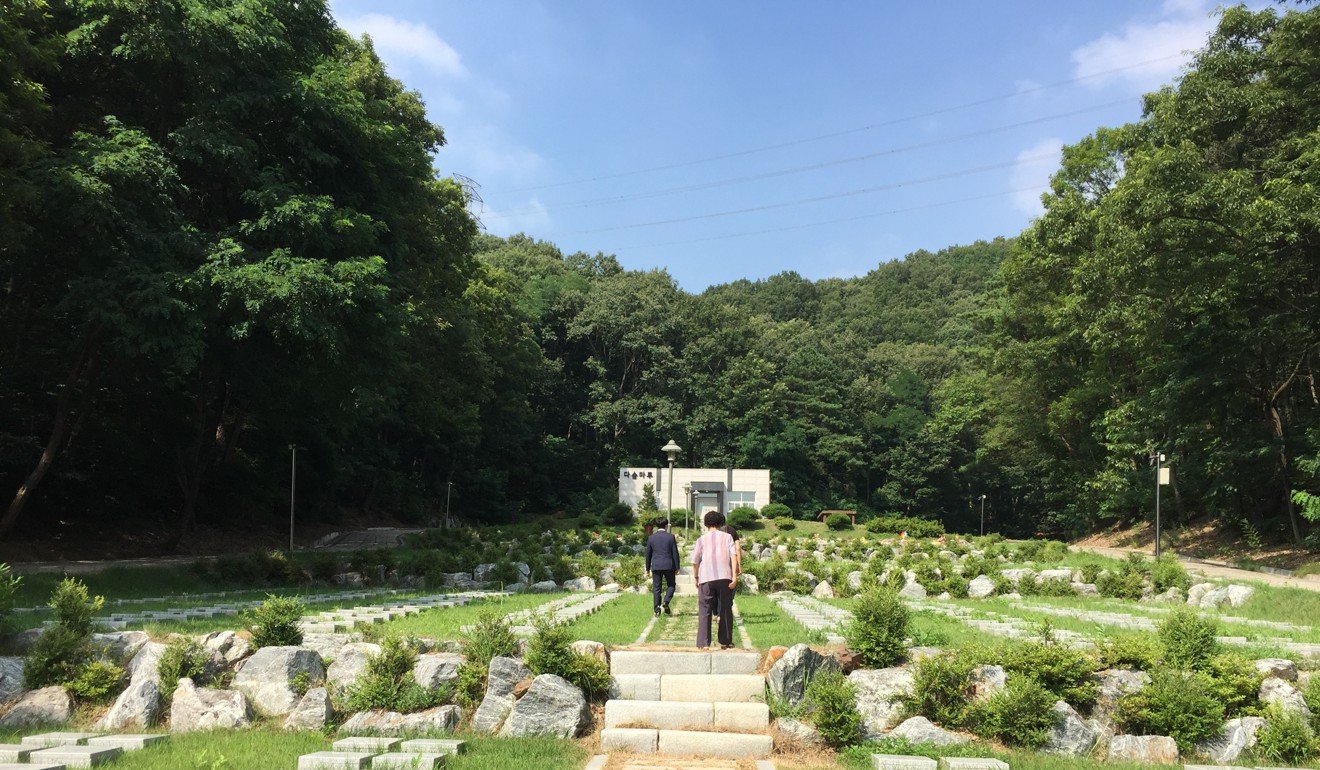
But any efforts would be too late for Choi, who even in death has been poorly treated, according to one VOM worker who knew her.
“I don’t understand why her ashes have been put [in the homeless section]. The government should know Ms Choi has a son and a husband in South Korea – there are government documents. Is it because they wanted to wrap up the case hastily?” he said.
“Ms Choi wanted to have a home in South Korea and it turns out she was placed among the homeless.”
In the meantime, Choi’s Chinese husband and son struggle to make sense of their loss.
There were no media reports about Choi’s murder and the police did not tell them what happened to the killer. Choi’s husband said he would claim his wife’s remains when he had a proper place to bury her.
“She is the mother of my son. We should get the ashes. But my son has to learn the language first,” he said.
* The names of all North Korean defectors in this article – except for Ji Hyeon-a – are pseudonyms to protect their relatives in North Korea.
